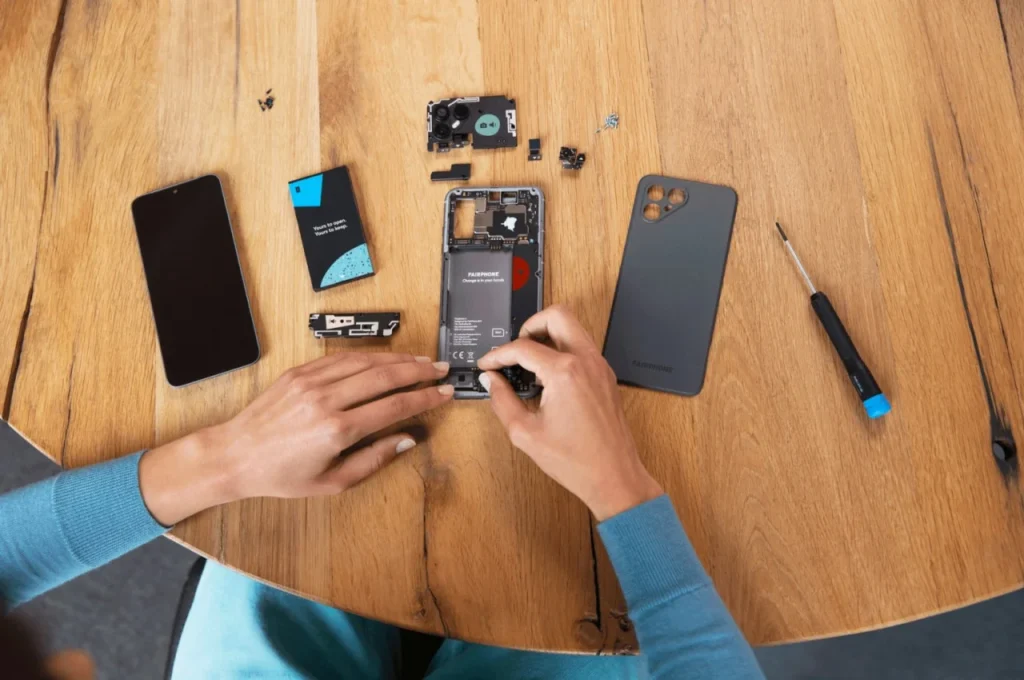As the world grapples with the pressing issue of environmental sustainability, the mobile technology sector is making significant strides to reduce its ecological footprint. The integration of eco-friendly practices in the production and disposal of mobile devices is not just a trend but a necessary evolution. This article delves into the innovations and practices that are paving the way for a greener future in mobile technology, highlighting groundbreaking advancements and their impact on the environment.
Green Manufacturing Processes
One of the pivotal areas where mobile technology companies are making a difference is in the manufacturing process. Traditional methods often involve harmful chemicals and substantial energy consumption, leading to significant carbon emissions. However, companies are now adopting greener alternatives. For instance, the use of recycled and biodegradable materials is becoming more prevalent. Manufacturers are sourcing materials like recycled plastics and metals, which significantly reduce the environmental impact compared to virgin resources. This shift not only conserves natural resources but also minimizes waste in landfills.
Furthermore, energy efficiency in manufacturing plants has seen remarkable improvements. Companies are increasingly relying on renewable energy sources, such as solar and wind power, to run their operations. This transition not only cuts down on greenhouse gas emissions but also sets a precedent for other industries to follow. By investing in energy-efficient machinery and processes, the mobile tech industry is contributing to a reduction in overall carbon footprint, showcasing a commitment to sustainable practices.
Eco-Friendly Product Design
Designing mobile devices with sustainability in mind has led to several innovative approaches. One such approach is modular design, which allows users to replace or upgrade individual components instead of discarding the entire device. This concept not only extends the lifespan of mobile phones but also reduces electronic waste. Companies like Fairphone have pioneered this initiative, offering phones that users can easily repair and upgrade, thereby promoting a culture of reuse and longevity.
Another significant innovation is the development of energy-efficient hardware. Advances in chip technology have resulted in processors that consume less power while delivering superior performance. This not only enhances battery life but also reduces the energy required for charging, contributing to lower electricity consumption. Additionally, the integration of renewable materials, such as bioplastics made from cornstarch or sugarcane, into the design of mobile devices is a growing trend. These materials are biodegradable and offer a sustainable alternative to traditional plastics.

Recycling and Disposal Initiatives
The end-of-life stage of mobile devices poses a considerable challenge due to the toxic materials they contain. To address this, the industry is implementing robust recycling and disposal programs. Many companies now offer take-back schemes, where consumers can return their old devices for recycling. These programs ensure that valuable materials like gold, silver, and rare earth elements are recovered and reused, reducing the need for new mining activities, which are often environmentally damaging.
In addition to company-led initiatives, there are collaborative efforts involving governments and non-profits aimed at improving e-waste management. Regulations mandating proper disposal and recycling of electronic waste are becoming stricter, compelling manufacturers to take responsibility for their products throughout their lifecycle. Innovative recycling techniques, such as hydrometallurgical processes, are also being developed to safely extract valuable metals from electronic waste with minimal environmental impact.
Conclusion
The journey towards sustainable mobile technology is ongoing, with significant advancements already making a positive impact on the environment. From green manufacturing processes and eco-friendly product design to effective recycling and disposal initiatives, the mobile tech industry is setting a powerful example for other sectors to follow. These innovations not only contribute to a greener planet, but also align with the growing consumer demand for sustainable products. As we continue to embrace these eco-friendly practices, the future of mobile technology looks promisingly green.

